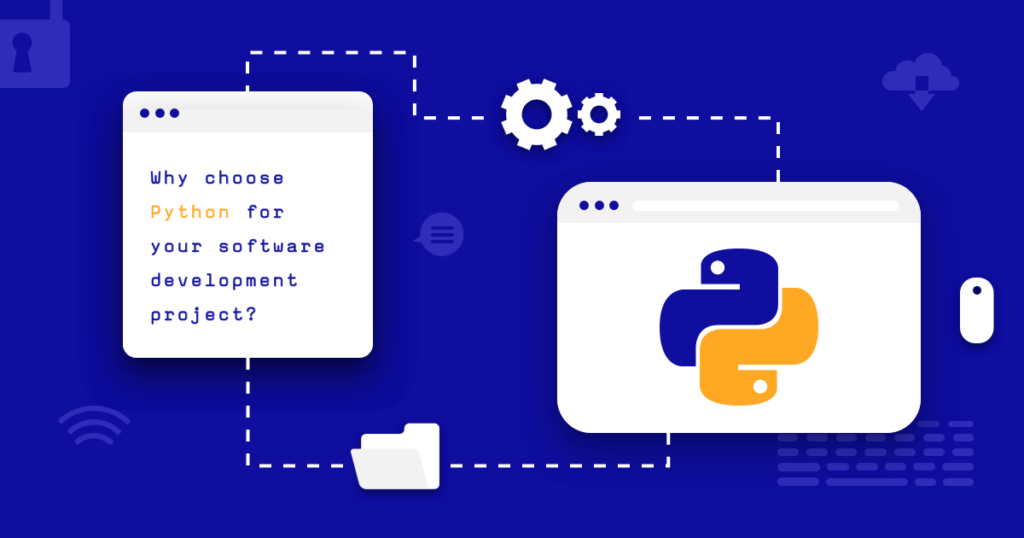
You have a product idea or concept but haven’t decided yet on what programming language to use? You wonder if the programming language makes any difference to your product? This article explains why and when you could opt for Python software development services.
The development team at Waverley Software have developed plenty of projects with Python. Based on their experience and portfolio, the applications of this programming language may greatly vary, including the now popular blockchain, data science, and machine learning. The application domains have practically no limits at all, and Python may fit any industry helping create both simple and complex solutions. If you wish to make it into the Data Science domain, it will be a wise decision to enroll in a Data Science Course from a reputed learning partner. This course will help you learn Data Science from scratch.
Pros and Cons of Python
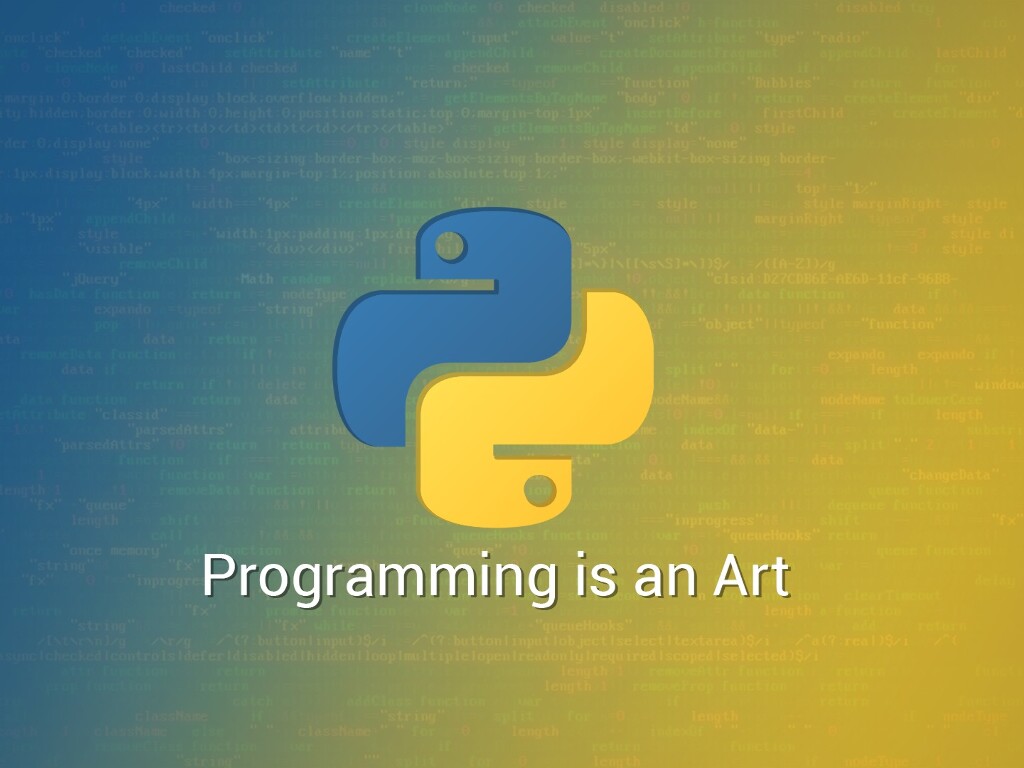
Before you start diving deeper into the subject matter, it’s crucial to understand there’s no one-size-fits-all solution in terms of choosing the primary programming language for a software product. There’s also no “best” programming language, each having its strong and weak sides. Your choice will depend on your project’s technical requirements, desired timeframes, allocated budget, and other factors. Unless you are a tech-savvy person, the best way to find out your ideal implementation is to turn for expert advice. Experienced software engineers can evaluate your project from different angles and suggest the most effective way for it to evolve.
As for Python, it has been one of the most loved programming languages among the development community since the beginning of the last decade, still ranking the third most popular programming language catching up with Java and C. It was also given the status of Programming Language of the Year in 2007, 2010, and not so long ago in 2018. Let’s take a look at the reasons why developers praise it so much.
Pros of Python:
- Code readability. As developers mostly read and modify the source code, that’s what directly affects the way code can be imported, used, and further maintained. It is also important for huge projects with numerous team members as every developer of the product should understand what their colleagues wrote.
- The minimalist principle. Python code is concise and expressive at the same time. This entails that such code requires less time, effort, and lines to perform the same operations. Also, the less complicated this code is, the more chances it will be clean and bug-free.
- Huge standard library. Python is designed to be a highly extensible programming language having lots of additional packages to offer. Developers enjoy its modular nature having a variety of tools to choose from for different tasks. Now it has more than 200,000 third-party packages for numerous development tasks.
- Community and Sustainability. Python is one of those programming languages that may boast a large supporting community of developers and contributors. As a result, one can expect frequent updates, quick issue fixes, and plenty of recommendations and answers to questions arising in the course of work with it. Moreover, for product owners this means it’s easier to find good Python developers.
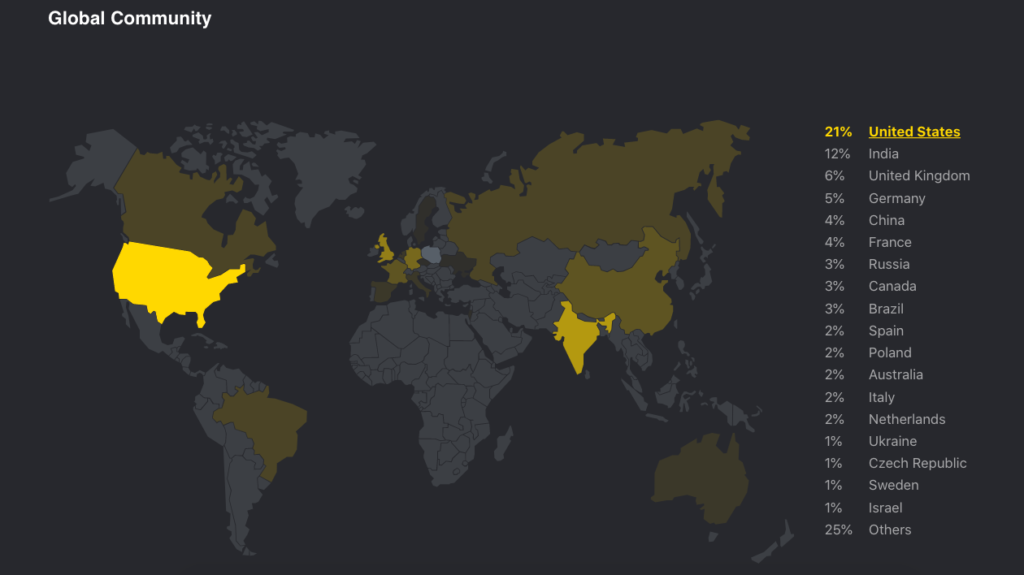
- High productivity. Python’s great readability, word economy, abundance of white space and indentation result in ease of use, less time to learn and understand it, and fewer bugs. The availability of so many frameworks and libraries to fit different purposes and a broad and mature supporting community also help programmers work quickly and efficiently.
As any other programming language, Python has aspects that aren’t favored. Some of the criticism is pretty deserved and objective that even Python fans agree with, while other negative comments about Python may owe to the lack of programming experience, insufficient background, or simply personal preference for another programming language. Still, there’s a couple of remarks worth taking into account.
Cons of Python:
- It is slow compared to some other programming languages. Python is an interpreted, high-level programming language. First, this means its source code gets executed without previously compiling a program into machine-language instructions. The speed of such an execution is much lower than with compiled languages but this gives some additional flexibility and features over compiled implementations. It also possesses a high degree of abstraction – it reads more as a natural language and hides all the computer details from the developer’s eyes. This affects the execution speed, but really helps the programmer to keep the code clean and readable.
- Dynamic type checking at runtime increases memory consumption and also slows down the operation. Also, with dynamically typed programming languages like Python, errors show up only during runtime that makes a program less reliable. On the other hand, dynamically typed languages are more flexible and agile in processing, and developers find them easier to use. Test-driven development and type annotations solve the issue of errors and are some of the best development practices to be applied in any case.
The good reasons behind Python’s downsides outweigh the impact on the program execution speed (which, in fact, is unlikely to get noticed by the end users). Also, looking at a greater productivity of the dynamically typed languages, it’s no surprise they’ve found their niche in scientific computing, statistical analysis, scripting and automation, and so does Python.
What Can You Develop with Python?
As mentioned before, it’s hard to say something for sure without knowing the project details. But there are areas where software developers prefer to use Python for a particular reason. Let’s consider some of the good application areas for Python development. Look out if any of them matches your project!
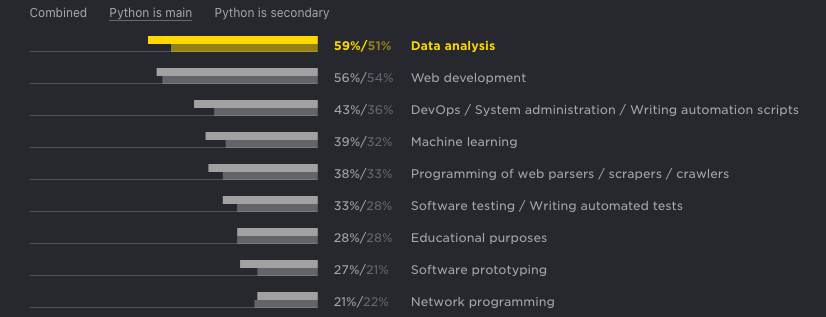
- AI-Powered Software and Data Science. Python’s rich choice of frameworks and libraries designed specifically for data science and machine learning is what makes it the leader in the field: TensorFlow, Keras, Pytorch, NumPy, SciPy, Scikit-learn, Pandas.
- Natural Language Processing. Developers like to use Python for projects involving NLP due to its modular nature, simple syntax, and robust text processing tools. The most popular library for natural language processing is Natural Language Toolkit (NLTK) and it’s written in Python.
- Web Applications. Python is good for website application design and development due to its readability and efficiency. Also its third-party frameworks Django, Flask, FastAPI, Aiohttp Pylons, Pyramid, TurboGears, Web2py, Tornado, Bottle and Zope have robust functionality that allows building complex solutions.
- Cross-Platform Software. Python allows building cross-platform software easily and quickly as it is an interpreted programming language, so Python-powered software can run directly on any platform without previous building or compilation for each platform individually.
- Information Security Industry. In cyber security, Python’s rich library of modules lets you cater for a range of important tasks in the field, including malware analysis, scanning, and penetration testing. This programming language is great for data analysis, scripting and automating tasks, which is also important for information security solutions.
- Prototyping and Simple Software. Python is a way more productive than other programming languages for simple utilities that don’t need to be robust. If you aim to outrun your competitors and development speed matters, take it as your go-to language.
- DevOps. Python’s easy-to-remember and direct syntax makes it suitable for deployment automation. In fact, the very accessible and flexible Python is considered to be a crucial part of the DevOps toolchain, as speed is what matters here.
Find Python Developers
With so many possible applications, the market of Python software developers is booming. Based on Stack Overflow statistics, Python is now the most discussed programming language in the development community, meaning that the supply of Python talent is pretty high.
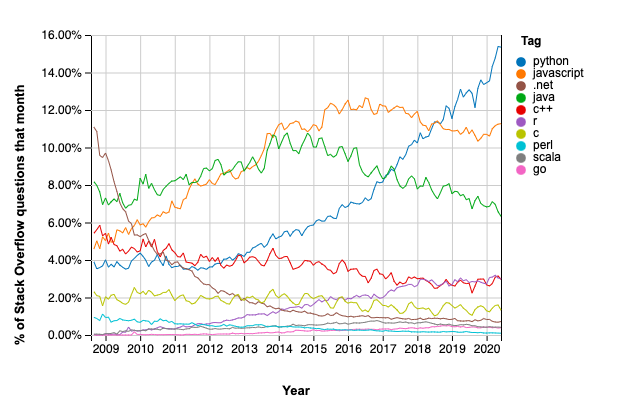
Python is clear and readable, and so it is easy to learn. This is the programming language preferred by newbies in software development. As a result, more and more people are choosing to learn it and write software in Python.
On the other hand, complex and sophisticated solutions demand expertise and experience. For example, universities and research institutes take Python for statistical analysis purposes as number one programming language for Data Science and Machine Learning. In addition, lots of statistics and data mining is being done to find a vaccine for the COVID-19 virus. Looking at the advantages of Python, it’s no surprise that software development experts in Python are in demand.
Waverley Software has access to a rich talent pool of experienced Python developers across the globe. Waverley’s in-house team counts as many as 230+ specialists and over 60% of them are Senior engineers. To this end, the company successfully employs the best remote work practices and has development centers in South America, Eastern Europe, and South-East Asia. Deep expertise, experience, and professional approach are the qualities most valued and supported at Waverley, driving the customer satisfaction and bringing the company 4.9 rating on Clutch.
Its amazing nowadays python is used everywhere and the importance also high this is simply explained the concepts.
Very insightful content on Python. But if anyone want to know more about Data Science or Data Analysis check out link given below:
https://bostoninstituteofanalytics.org/data-science-and-artificial-intelligence/